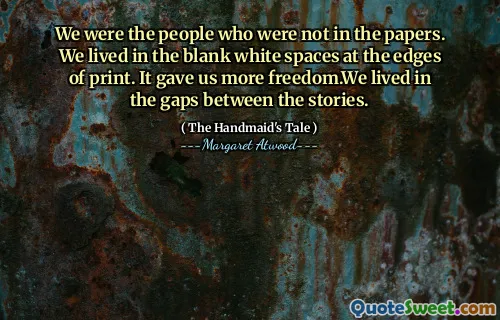They seemed to be able to choose. We seemed to be able to choose, then. We were a society dying of too much choice.
In "The Handmaid's Tale," Margaret Atwood explores the paradox of choice within society. Characters in the novel initially perceive themselves as having the freedom to make choices, yet the surrounding oppressive environment significantly restricts their actual agency. This illusion of choice highlights the complexities of personal freedom in a regulated context.
This notion of an abundance of choices leading to societal decline underscores Atwood's critical commentary on modern life. The idea suggests that too many options can create paralysis and dissatisfaction, reflecting the struggles individuals face when navigating societal expectations and constraints. Ultimately, the book serves as a cautionary tale about the implications of choice in a controlled society.






